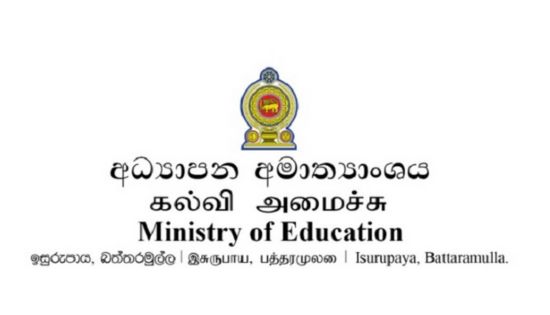SLASSCOM-Deloitte Survey Reveals Crucial Insights on Employability Skills in Sri Lanka’s IT Industry

Upekha Ukuwela – Director – Human Capital Consulting, Deloitte, handing over the report to the SLASSCOM Team
SLASSCOM recently conducted an Employability Skills Survey aimed at assessing the current skills landscape and evaluating the readiness of candidates from Sri Lankan universities and higher educational institutes for the IT industry. The survey, conducted in collaboration with Deloitte, sought to identify key trends, challenges, and opportunities in the industry while fostering collaboration between the industry and the education sector.
Over 37 IT companies were surveyed and over 80,000 IT professionals with more than 15 years of industry experience. This year’s survey focused exclusively on IT/IS companies, with IT product company representation reduced to 19%. Additionally, all surveyed companies in 2024 had more than 50 employees, indicating a shift away from startup participation.
The Survey had several objectives. It aimed to collect detailed data on the current state of employability skills within Sri Lanka’s IT market and identify key trends and challenges in the industry. It also sought to understand the specific skill demands of employers and the perspectives of IT professionals regarding their skills and job prospects. By providing a platform for industry stakeholders to discuss and collaborate on addressing skills gaps, the survey intended to generate actionable insights and recommendations to improve employability skills. Ultimately, it aimed to foster partnerships and initiatives to enhance the overall employability skills landscape for IT professionals in Sri Lanka. The survey was conducted through a detailed questionnaire distributed among IT industry professionals and employers, with the collected data analyzed to pinpoint trends, challenges, and opportunities within the IT/software industry.
The survey unveiled several key findings. It highlighted that emerging technologies like artificial intelligence (AI), data analytics, cloud computing, and cybersecurity are top priorities for organizations, reflecting a strong demand for skills in these areas. Technologies like process automation, big data platforms, and machine learning are seeing growing demand, with frameworks and libraries such as Automation Anywhere, React, .NET (5+), and Spring Framework becoming increasingly important.
Software engineering continues to be a top profession, though software quality assurance (SQA) has surged from fifth to second place, and system/network engineering has dropped out of the top five. The demand for software engineering has increased from 14% in 2021 to 30% in 2024, with emerging needs for QA automation and DevOps professionals. There has been a decline in demand for project management and quality assurance roles, with QA automation no longer among the top professions.
Regarding skill supply and graduate hiring, it indicated a rise in graduate hires, although companies are struggle to fill these positions due to a limited talent pool, and mismatched salary expectations. There is a clear shift towards valuing practical and applied skills over theoretical knowledge, with teamwork becoming crucial to meet industry demands.
Additionally, 41% of responding companies are investing between LKR 100,000 and 250,000 per graduate hire, reflecting a strong commitment to developing new talent. The survey also highlights current trends in tools and technologies, including the prominence of cloud platforms, frameworks, and AI development tools, while noting that software engineering, AI, data science, and machine learning remain distinct tracks. Furthermore, the importance of soft skills—such as communication, public speaking, and collaboration—has become increasingly evident, especially given the decline in these skills due to the reliance on online learning during the COVID-19 pandemic.
Based on the findings from the Survey, the goal now is to improve IT education, talent development, address the skills gaps, and enhance the industry’s growth and competitiveness in Sri Lanka.
Related News
Plans underway to integrate vocational training at school level – PM
Minister of Vocational Education, Prime Minister Harini Amarasuriya, says adequate attention is not drawn towards vocational education, but moving forward, necessary action…
Read MoreBBA (Hons) – Business Management – SLIIT
Employers prefer graduates with a broad skill set over those with specialized knowledge in today's fast-paced workplace. This demand is met by…
Read MoreCelebrating Innovation in Design : Uvinya Munasinghe Wins “Bench It” 2025
The City School of Architecture is shining with pride as one of its talented students, Uvinya Munasinghe, nailed the top spot in…
Read MoreSanitary pads for schoolgirls : announcement from Education Ministry
The 2025 programme to distribute sanitary pads to schoolgirls in Sri Lanka will be implemented exclusively through four commercial entities, the Education…
Read MoreApplication for Grade 1 Admission in Govt Schools 2026
Today, the Ministry of Education announced the release of instructions regarding the admission process for Grade One students in State schools for…
Read MoreCourses
-

IMC – Bachelor of Psychology
IMC Education Overview IMC Campus in partnership with Lincoln University College (LUC) Malaysia offers Bachelor of Psychology Degree right here in Sri… -

ANC – BA (Hons) International Business Management (Top-Up)
ANC Education Overview Designed in partnership with public and private business organizations, this program develops one’s ability to critically evaluate business models… -

IIT – BSc (Hons) Computer Science
IIT Campus Overview BSc (Hons) Computer Science provides a solid foundation and training regarding the fundamentals of the computer science field, along… -

APIIT – BSc (Hons) Cyber Security
APIIT Sri Lanka Overview Our BSc (Hons) Cyber Security award is designed to launch your future career in the protection of software… -

ICBS – BSC (Hons) Business Management with Marketing Management
ICBS Overview The BSc (Hons) Business Management with Marketing program, awarded by Queen Margaret University (QMU), is a highly regarded degree that… -

UTS – Diploma of Science
UTS College Sri Lanka Overview The Diploma of Science is designed to empower you to apply scientific thinking and analysis to important… -

CSA – Master of Architecture and Environmental Design
City School of Architecture Overview The Master of Architecture and Environmental Design Degree at CSA is awarded by the University of the… -

APIIT – BSc (Hons) International Business Management
APIIT Sri Lanka Overview Increasingly businesses are becoming more and more international. This requires business management professionals to have knowledge, skills and… -

IIT – BSc (Hons) Artificial Intelligence And Data Science
IIT Campus Overview The BSc (Hons) Artificial Intelligence and Data Science course is awarded by Robert Gordon University (RGU) in the UK… -

ICBS – International Degree Foundation in Business / IT
ICBS Overview The Scottish Qualification Authority (SQA) is a globally recognized organization dedicated to education and qualification development. SQA is responsible for… -

APIIT – BA (Hons) Finance and Business Enterprise
APIIT Sri Lanka Overview Finance and accounting are no longer just about taxation and the management of financial capital. This award will… -

APIIT – MBA General
APIIT Sri Lanka Overview The MBA is awarded by Staffordshire University, UK. This award is an advanced course of study in management… -

ANC – LLM in International Business & Commercial Law
ANC Education Overview This course is designed for graduates of law, business and finance in a legal or a corporate job role… -

AOD – BA (Hons) Fashion Design and Marketing
Academy of Design Overview The syllabus is from the UK’s Northumbria University, as one of their most revered flagship programmes and is… -

APIIT – MSc. Marketing Management
APIIT Sri Lanka Overview This MSc Marketing Management degree – awarded by Staffordshire University, UK is an advanced course of study in…
Newswire
-

New World Record from Wanindu Hasaranga
ON: July 5, 2025 -

Opposition Leader Warns of Looming Debt Crisis Without 5% Growth
ON: July 5, 2025 -

Thriposha to Launch 100 New Retail Outlets Across Sri Lanka
ON: July 5, 2025 -

Police slams Irresponsible Media Coverage of Seatbelt Regulations
ON: July 5, 2025 -

Over 5,000 Dengue Risk sites identified
ON: July 5, 2025










